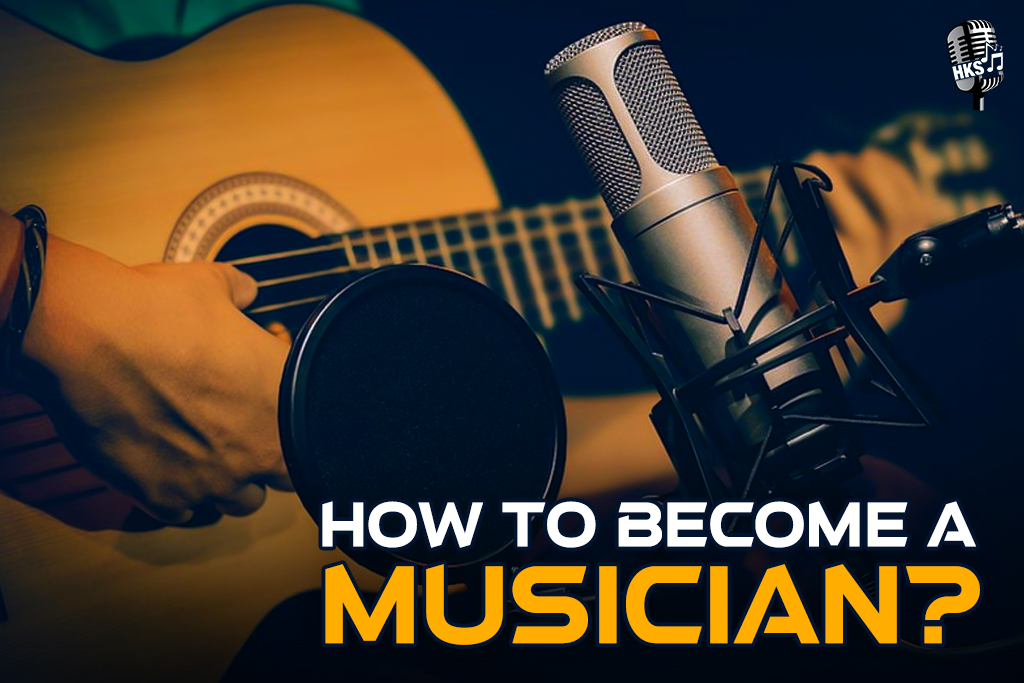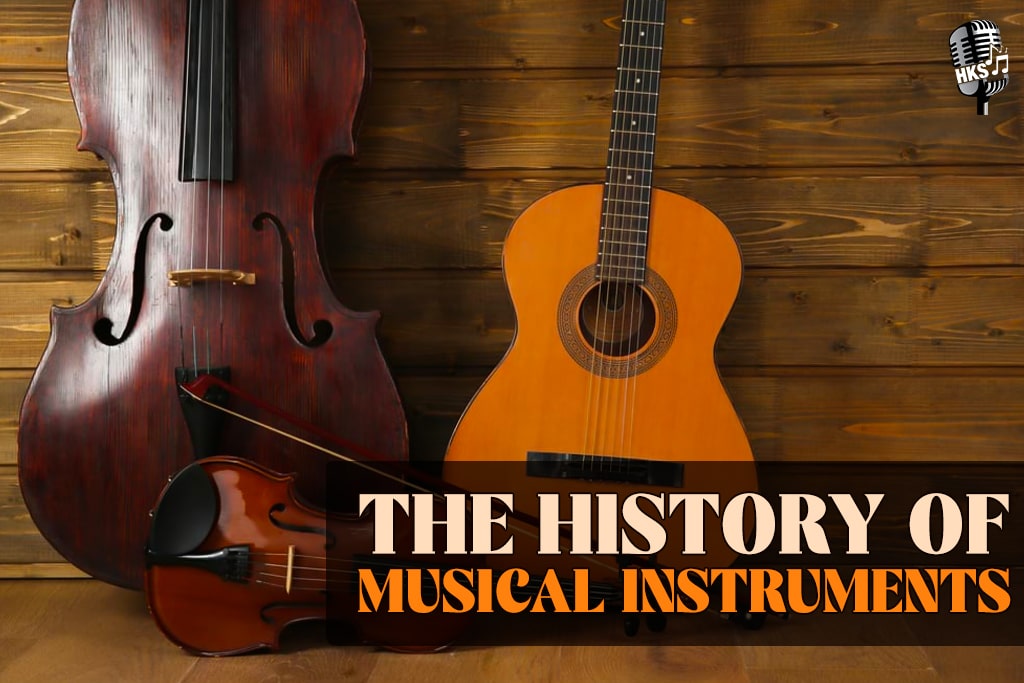Ramzaan Store Wide Sale | 35% Off | USE COUPON CODE - RAMADAN35

Music is a universal language, the kind of a language that can be mastered in many ways. It is the root of a tree that has its branches spread in almost all the fields we can think of. So, even while reading this, there is a good chance that music is pumping through your ears, and a tune is stuck in your brain. It makes up a significant part of our daily lives, and it is one of the most beautiful gifts humans have ever had.
Growing up, becoming a musician is a dream for many of us, but not all make it a goal to be. In the earlier days, information was not so readily available. Thus, it was challenging to discover what it is about being a musician and how to be one, to be precise. Now that almost all of us have access to the Internet, it is not very difficult to find anything we need.
If you dream to be a musician, there must be a series of questions popping in your head in circles. Questions like how difficult it is to be a musician, steps, etc. Well, it is time to clear the clutter. To begin with, try and understand who a musician is.
According to definitions, a musician might compose, perform, or conduct music in any form. But we all know that we cannot tie art up in definitions. So, basically, if you do anything directly related to music, you might be a musician, but you just cannot call yourself a musician if you are not sure how. So, let's dig deeper into this.
- Types of Musician
In accordance with the books and the Internet, there are basically three types of musicians;
Composer
A composer would be someone who creates or writes music, basically composing it. There can be various places where you can compose music, and the prominent ones are the film and the music industry (kind of obvious). Even if you are not interested in composing for songs, you can produce musical scores for the movies; the background music gives the chills in a movie.
However, if you write lyrics for a song, you wouldn't be called a composer, but instead, a songwriter.
Conductor
We all have seen people stand in front of orchestras with a stick in their hand, waving it around in motions, and the music playing accordingly. Well, that is precisely who a conductor is. Conduction is defined as "the art of directing the simultaneous performance of several players or singers by the use of gesture."
Performer
A performer is whom most of us imagine as a musician. Their work is to play instruments, sing, but it is not limited to that. They can perform as a part of a musical group, a band, or even solo; either for a live audience or, and the recording purposes.
Now it becomes necessary to know what being a musician actually is. If you ask any successful musicians today, they will tell you tips that they wish they had known earlier.
So, here are some of the things that you should know before becoming a musician.
- The Music Industry Is a Business
As early as possible, learn everything you can about business.
Many young artists are opposed to the notion of music as a business. More specifically, music is a commodity subject to the law of supply and demand, just like any other commodity. Therefore, your recording musical performances and recordings are consumable goods that may be purchased and sold.
We want the freedom to create as artists. One of the reasons we desire to pursue a career in music is to avoid having a day job. The irony is that to acquire the creative freedoms we crave, and we must be the ultimate businessperson.
If you wish to have a career in music, you must first accept the notion of working in the industry. There is no shame in requesting funds. Money is only a symbol of the value you provide to the world via your creativity. It is necessary for your survival.
Because the freedom that a music professional provides is significant, your creativity must also be helpful to others. Any successful business is built on this foundation. So, immediately study everything there is to know about business. There are several good articles and books on the subject. Don't only study music; learn the business as well. Also, research the art business.
- As quickly as possible, become musically literate.
Acquire the ability to read and write music.
Surprisingly, whether or not a musician should be literate is a point of contention. Music is an auditory art, and learning every piece of music entails listening and mimicking. Some successful artists never learned to read or write music (particularly in popular forms). True, great musicians and even composers don't read or write music.
As musicians, others are entirely literate. Which one would you choose to be? Imagine living in a placec where you can read the signs and newspapers but not the language. Music is a kind of communication. The written form allows you to think about what you've heard visually. It leads to a greater level of comprehension, which is also delightful.
The majority of working musicians are able to read music. Because not being able to read kept me out of better musical opportunities, becoming literate was a priority for me. It prompted me to apply to Berklee College of Music in Boston for music studies. Learning to read music was one of the most delicate decisions I've ever made.
The most significant option is to focus and do everything it takes to become literate as a musician as soon as possible. Learn to improvise as well.
- Surround Yourself with Musicians
Music is a form of communal expression. We usually perform in a group with other musicians (though maybe not always). As you gain experience and participate in musical collaborations, you will see that certain artists perform better than you. Playing alongside them might help you develop as you learn from these musicians. They will actively assist individuals in the group in improving to improve the group as a whole.
You can potentially end yourself in a group with people who are more advanced than you. You might then actively assist others in improving. Of course, it's uncommon for all musicians in a group to be at the same skill level, but it does happen.
You learn the most when you're in a group with musicians who are better than you. When you are the most powerful in the group, you should pay it forward by assisting others in improving. There are always important things to be learned from these inconsistencies.
- Discover More About Marketing
Learn about marketing and sales, as well as the distinctions between the two.
This follows naturally from my prior assertion that music is a business. Any company's lifeblood is marketing and sales. Unfortunately, the ordinary individual is unaware of the distinction between the two. Fortunately, there are several excellent books and websites from which to learn.
Glance into Psychology
Psychology, organizational behavior, physics, electronics, computers, history, literature, art, biology, and economics are just a few of the subjects you can study. In addition, examine spirituality and traditional wisdom traditions. Travelling can also help you extend your horizons.
While mastering music's skill and methods is crucial, the artist's responsibility is to communicate thoughts about society, the world, and life in general. Many individuals value art because it shapes their worldview by reflecting society to them. Great music resonates because it causes a shift in the listener's perception, which adds significance.
Some art serves solely as a kind of amusement. The listener is in charge of determining the meaning pertaining to them.
Each listener expects to be amused or informed when they listen to music. This is what the fans are paying for, and the artist must provide content that will draw in and keep an audience. As a result, an artist should be well-travelled and knowledgeable about (or at least aware of) spiritual subjects.
Many artists believe that their work has a spiritual component to it, that it channels something higher than themselves, whether inspiring, revelatory, or motivational.
This may be a divisive piece of advice, but musicians should learn as much about the world and not confine their viewpoint to music alone. Whatever it is that fascinates you, study everything you can about it and be open to new experiences.
- Be loyal
It is important to be loyal and how to inspire people in your field to be loyal. Arrive on time and be dependable at all times.
A successful career is built on the foundations of loyalty and punctuality and passion, perseverance, and dedication. Expect the same from others if you are a trustworthy partner, collaborator, employer, boss, or employee.
These are some of the tips you should keep in mind while planning to become a musician. It is a bumpy road to the stage of being an actual musician, but you should never give up. If you seek to start earning through music, you must have backup savings, a job, and plans as well because life can take turns.
Now that you know the basic tips to be a musician, you must know the basic rule of being one, practice. Practicing is necessary, and it is the only thing that can polish your skill and make you better. So, if you are a singer looking forward to practicing karaoke tracks, do visit Hindi Karaoke Shop, your one-stop-shop for the highest quality Karaoke Songs in a comprehensive library of our collection!
Good luck








Sarika Jaiswal
4 years ago
Helpful blog, I need it actually.
Jason C. Rader
4 years ago
I bought a couple of tracks from the Hindi karaoke shop and I loved the track.
Ryan
4 years ago
I’ve been surfing on the web for more than 3 hours today, yet I never found any stunning article like yours. It’s alluringly worth for me.
Prateek Verma
3 years ago
No matter what the situation is, music works like a charm.
Kailash Sahu
3 years ago
Your blog is really good and motivating for someone like me who loves singing and is at the stage of learning.
Kesh Nathwani
3 years ago
You cover many more useful tips in your blogs. I enjoy reading your blog.
Sharon Robin
3 years ago
The blog is interesting, I enjoy reading it.